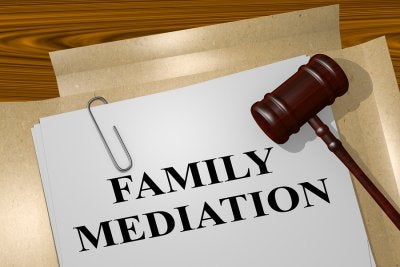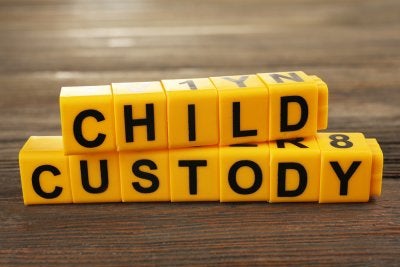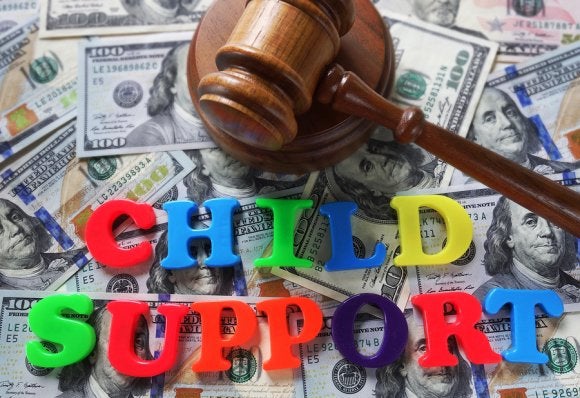-
The Benefits of Mediation in Child Custody Disputes
During a divorce, child custody is a particularly contentious issue. Clashes over custody can do lasting damage to the relationships between parents and children, especially when coming to an agreement involves nasty courtroom battles. Mediation offers an alternative that can be easier on families. Talk to a mediation lawyer in Baltimore if you are facing a child custody dispute to see if you could come to an agreement outside of the courtroom that works for your family. Here are some of the benefits to choosing mediation in your custody dispute.

Less Stress for Parents
Mediation is not adversarial, as disputes decided in the courtroom can be. The goal of mediation is for all parties to work together to come up with a solution that is right for everyone. There are no winner or losers in mediation, so the overall process is less overwhelming. A third-party representative will guide the mediation process and ensure that no one’s rights are violated, so you can focus on making an agreement instead of being on guard.
Less Stress for Kids
When parents are locked in a custody dispute, their animosity almost inevitably encroaches on their children’s well-being, even despite the best intentions. Kids may feel pressured to choose sides or may hear one parent talking disparagingly about the other parent, causing confusion and fear. Because mediation is easier on parents, it is also easier on kids. They may also get an outcome that is better for them, since the focus of everyone in mediation is to make a plan that is right for the children.
Improved Long-Term Cooperation
Mediation helps to set the tone for what the new normal will look like after a divorce. When parents cooperate during mediation and come up with a child custody plan they both feel good about, they walk away feeling encouraged about their abilities to co-parent even after divorce. This kind of cooperation sets the stage for future issues to be negotiated collaboratively rather than in an adversarial manner.
-
A Look at the Legal Process for International Adoptions
Adopting a child is a wonderful way to grow your family. However, international adoptions have restrictions that do not apply to domestic adoptions; working with an attorney familiar with family law in Baltimore can help reduce stress associated with and speed along the international adoption process. The country of origin of the child can influence the ultimate adoption process, but all international adoptions require a few basic determinations. First, you will need to undergo a home study and apply to the U.S. Citizenship and Immigration Services for the ability to adopt. Next, you must file a petition and ensure the child you wish to adopt is eligible to immigrate to the U.S. Once the adoption process is complete, you must obtain an immigrant visa for the child so he can be brought into the country.
Each year, thousands of children are adopted from overseas into American families. Your family law attorney can help you throughout the adoption process with services that include assistance with finding an appropriate adoption service provider and adoption mediation if necessary.

-
Tips for Making Provisions for Guardianship and Custody in Your Will
Drafting a will ensures that you are able to clearly state your wishes regarding issues such as asset inheritance and child custody or guardianship following your death. Whether you are creating a will for the first time or updating a previous document, it’s important to consider several factors when making provisions for guardianship in your last will and testament in Baltimore. Working with an experienced lawyer can help you ensure that the provisions you make are appropriate and beneficial for your children in the event of your death.

Tips for Naming Guardians
During the creation of your will, you should name one primary and one secondary guardian for each of your children currently under the age of 18. The purpose of naming a secondary guardian is to ensure your child is cared for in the event that your primary choice does not wish to or cannot fulfill the obligations of guardianship. It is typically best to name only one primary guardian, as naming two individuals could lead to conflict over custody in the future; however, naming both members of a stable couple or marriage is acceptable if you want both parties to have legal control over your child’s future.
Tips for Handling Finances
In addition to naming a guardian to retain custody of your children in your will, it’s also important to consider how you will provide financial support for your children in the event of your death. You may wish to appoint a separate individual to control the financial aspects of your child’s estate if you feel that the individual to whom you have granted guardianship may not be the best person to handle your child’s financial future. Alternatively, you can opt to set up a financial trust for your children, which is designed to meet their ongoing financial needs; when creating a trust, you will need to name a trustee in charge of handling these assets.
-
What Are Some of the Common Issues in Child Custody Disputes?
Establishing a child custody, child access, and visitation arrangement (often known as a Parenting Plan) does not need to be a contentious battle. Family mediation serving Anne Arundel County can help the parents reach solutions that work for both households. During mediation, the parents may be reminded that they must come to agreements that are for the child’s best interests, which may not necessarily serve the interests of both parents. The mediation process can help parents resolve a number of disputes.

Decisions for the Child’s Upbringing
Legal custody refers to the parental right and responsibility to make major decisions on behalf of the child. These include decisions regarding the child’s education, health, religion/religious training, and welfare. During mediation, both parents can explain their preferences and goals for the child’s upbringing, and work toward solutions that benefit the child’s well-being. The parties can also define a dispute resolution agenda to help the parties work through future problems should one arise.
Access to the Child
A lawyer may recommend mediation for child custody disputes that involve access to the child. It is becoming more and more common for parties to share custody. Each family is different and there are various schedules such as “week on/week off”, 2/2/3, and many other alternative time sharing on 50/50 access. Even if the parents agree on the child’s primary residence, disputes may still arise regarding the parenting time or visitation schedule. For example, both parents may demand access to the child on holidays, birthdays, and weekends. Since ongoing access to both parents is generally beneficial for children, compromises often involve rotating weekends, holidays, and school vacations.
Access to Information About the Child
Mediation can help the parties think about and agree on how to exchange information about the childnre. Each parent should have unfettered access to school records, medical records, and similar information. In mediation, the parents can agree on appropriate methods of exchanging information and which information should be exchanged. This includes exchanging parent/teacher conferences, doctor’s appointments, report cards, interim reports, activity schedules, etc.
Uniformity of the Homes
Household uniformity is a crucial issue in child custody. Children need stability, regardless of whether are young, tweens, or teenagers. Children who are expected to follow two different sets of household rules, abide by different bedtimes and curfews, and meet two different standards of expectations can become confused, frustrated, resentful, and act out. Children who are in non-divorce homes are good at dividing and conquering parents. Children of divorce are better because parents may not have a good relationship. Mediation can help identify this issue so that the children know the parents are unified even if they are no longer together. By considering these issues during the Parenting Plan stage, the parties will
-
What Issues May Require Post-Divorce Modifications?
Not all matters resolved by a court order may be modifiable. However, if your circumstances have changed and you believe a post-divorce modification is called for, it’s best to contact an attorney in Baltimore as soon as possible. Your lawyer could help you seek a change in child support, for example. If you’re receiving child support payments, you may need to ask for an increase in payments if your child develops a serious illness or otherwise requires significant care. If you’re paying child support, mediation may be called for to lower the payments if you’re dealing with job loss or other substantial changes in circumstance.
Mediation for post-divorce modification could also address needed changes in alimony, or spousal support. If the Court awarded you alimony or ordered you to pay alimony, your alimony is subject to modification. If you entered into a written agreement for alimony, which was non-modifiable, you may still be able to modify your alimony if the other party is willing to agree. For example, if a payor has lost a job, the receiving spouse may agree to temporary reduction in exchange that the alimony will be paid later. The reason he or she may do this is to avoid the unnecessary emotional and financial costs of litigation.
Talk to an attorney about mediation services if you have reason to believe that the child custody arrangement ought to be modified. For instance, if you are currently the non-custodial parent, you might request custody of the child if the other parent is engaging in substance abuse, has been arrested, or has been neglecting the child. You may also wish to revisit the parenting plan and custodial arrangements due to the age of the child, the distance between the parents’ residences, and the need of co-parenting for help related to the extra-curricular activities of the child.


